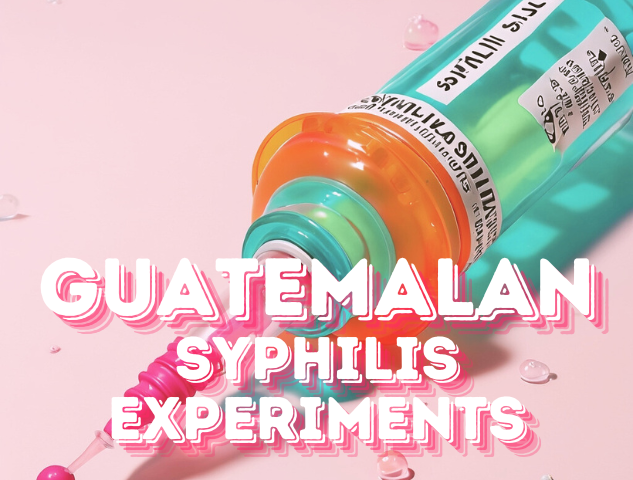Recent Posts
Newsletter
Subscribe to our newsletter to get our latest update & news consenter
Subscribe to our newsletter to get our latest update & news consenter

The Guatemalan Syphilis Experiments were a series of unethical medical experiments conducted between 1946 and 1948 in Guatemala by U.S. government researchers. These experiments involved deliberately infecting prisoners, soldiers, and mental health patients with syphilis and other sexually transmitted diseases to study the effectiveness of various treatments.
Methods: The methods involved deliberately infecting participants with syphilis and other sexually transmitted infections through various means, including direct inoculation and exposure to infected individuals. Treatments, including penicillin, were tested on the infected participants to evaluate their effectiveness.
Participants: The subjects included prisoners, soldiers, and patients in mental health facilities. Many participants were unaware of their involvement in these experiments and did not consent to the procedures.
Key Organizations Involved:
U.S. Public Health Service (USPHS): The USPHS, under the direction of Dr. John C. Cutler, played a central role in planning and conducting the experiments. The USPHS aimed to gain insights into syphilis treatment and prevention.
Additional Key Individuals Involved:
Dr. John C. Cutler: Dr. Cutler was a key figure in the experiments, serving as the lead researcher. He was involved in planning and overseeing the studies in Guatemala.
University of Pittsburgh: Some of the research and planning for the experiments were conducted in collaboration with institutions such as the University of Pittsburgh, which provided scientific and medical expertise.
Implications of the Guatemalan Syphilis Experiments:
International Outcry: The revelation of the experiments led to international condemnation and damaged the reputation of the U.S. government and its research institutions. The ethical violations have had lasting implications for U.S.-Guatemalan relations.
Compensation and Apologies: The U.S. government issued apologies and offered compensation to survivors and their families. The ethical breaches led to increased calls for accountability and reparations for affected individuals.
Risks Associated:
Unethical Infection: Participants were deliberately infected with syphilis and other sexually transmitted diseases without their consent, leading to severe health complications.
Lack of Informed Consent: Many subjects were unaware of their involvement in the experiments and did not provide informed consent, violating fundamental ethical principles.
Health Complications: The experiments caused significant health issues, including untreated syphilis, which can lead to severe long-term health problems, including cardiovascular damage and neurological issues.
Additional Risks:
Psychological Impact: The participants suffered psychological trauma due to the nature of the experiments and the lack of understanding of their medical conditions.
Legal and Ethical Violations: The experiments are considered gross violations of medical ethics and human rights. They have been widely condemned for their disregard for the well-being and dignity of the participants.
Blogs:
Resources: